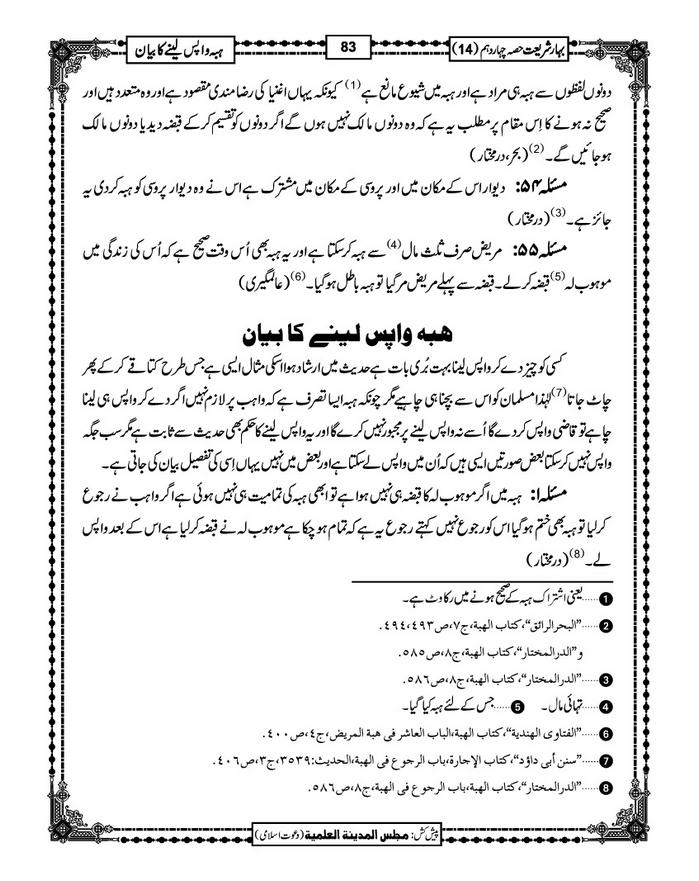
With the exception of? Darul Iftas, there are also numerous Mosques the world-over that have classes in which? Bahaar-e-Shariat?is taught to the worshippers: and numerous Muslim Colleges and Universities in the World have introduced? Bahaar-e-Shariat?as a part of the syllabus for those studying to become? Ulama. Qadri.?Today, there is hardly a? Darul Ifta?that does not carry a copy of? Bahaar-e-Shariat. “Bahar e Shariat Book by Amjad Ali Aazmi”. Of goods) and Kufria sentences etc.?Maulana Ilyas Attar Qadiri’s Dawat-e-Islami has done work on a computerized version See also List of Sunni books Kanzul Iman Fatawa-e-Razvia Husamul Haramain References ^ +Umer Similarly, The second part includes topics like Talaq ( Divorce) and Khula, (trade matters involving buying and selling.

Only the following transpires and makes up Fatiha: Recitation of the Holy Quran, which is a physical act of worship (ibaadat), and Charity, which is financial ibaadat.

Without having done any deed, they will attain rank. Jannat through the means of their parents.

Jurist also relies on the rulings given in the book. It was originally written for women and children but now is studied across Islamic Seventeen of itsĬlerics and research scholars, all find it a complete book of Islamic Sharia with 11624 topics explained briefly yet Islamic fiqh (jurisprudence), according to the Hanafi school, spreading over 20 volumes. bahar-e-Shariat? Academy Dargah-e-Ala Hazrat Outline v the Bahar-e-Shariat (1939) is an encyclopedia of.in other words, Bahaar-e-Shar’ah?is possibly the most authentic and comprehensive? fiqh?book currently in the? Urdu?language for Hanafi Sunni Muslims. Above all, Bahar e Shari?at’?is that universally acclaimed book of the eminent ?Khalifa?of the great Mujaddid of Islam, AlaHadrat Shah Imam Ahmad Raza Khan,? ‘Alayhi ar-Rahman w’al-Ridwan,and the great? faqih?of the era, Sadrus Shari’ah, Qadi Hakeem, Allama Abul Mawlana Amjad Ali Aazmi Razawi,? ‘Alayhi Rahman, which can be justifiably called the Encyclopedia of the Hanafi Islamic ( fiqh) Jurisprudence.


 0 kommentar(er)
0 kommentar(er)
